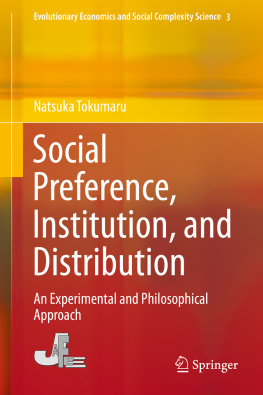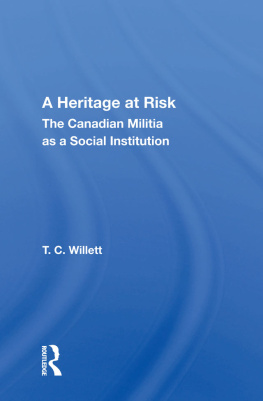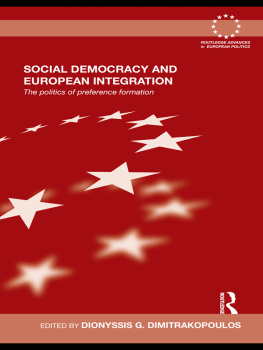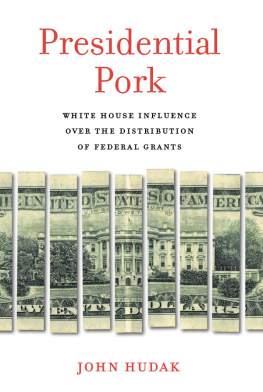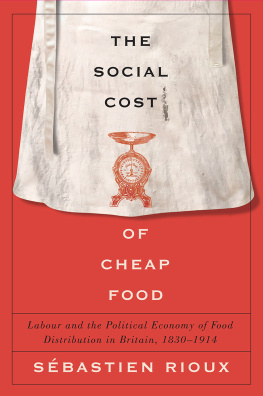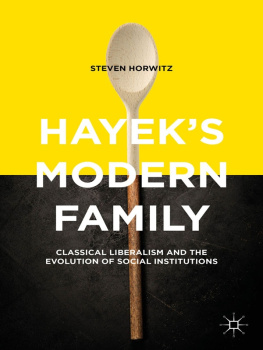1.1 The Emergence of the Experimental Method in Economics
The emergence of the experimental method in economics seems to have strongly impacted standard economic theories by challenging the central behavioral concept of homo economicus , which identifies humans as seeking to maximize their utility in a given condition under perfect rationality and by enriching behavioral assumptions using the newly introduced empirical method. This is symbolized by Vernon Smith, the most representative experimental economist and winner of the Nobel Prize in 2002. Behavioral or experimental economists have performed various kinds of experiments or empirical investigations examining individuals behaviors or incentives in given situations. For instance, the dictator game, one of the most popular experiments, involves a participant (a dictator) sharing a pie of money (e.g., $10) with another anonymous participant (a recipient). Despite the expectations of standard economic theory, according to which the dictator would distribute the entire pie to himself and leaves nothing to his partner, most participants do not behave in this way. Many experimental results imply that individuals are not only motivated by selfishness but also by reciprocity, fairness, and social norms.
Although methods introduced to economics by experimental economics appear revolutionary compared with standard economic theories, the empirical results they have brought so far have not been novel but rather belong to knowledge that already exists. Through our daily experiences, we know human beings are often selfish, though not always, and that our actions are motivated partly by concepts such as care for others, morality, reputation, and social norms. We know that while we behave rationally in most cases, sometimes our behavior is wrong or even stupid, and this also applies to the behaviors of others. Putting it differently, the concept of homo economicus itself is a theoretical artifact, which presupposes strong assumptions of selfishness and rationality to construct a coherent system of the discipline, and thus it is no more surprising if experiments empirically falsify such an artificial concept. Even if one admits the usefulness of neoclassical models as a tool to give a framework for providing predictions or falsifications of empirical assumptions, questions remain regarding how the new empirical results of experiments change economics.
The human behavior that underlies most social facts has been a central theme of economics since its beginnings. If one opens a book from the Age of Enlightenment, one will find plenty of discussion on the nature, sense, customs, or actions of humans, together with the analysis of their relevance to the social sciences). One may say that although the concept of homo economicus may be theoretically elaborated and broadly prevalent, it is merely a point on one among numerous branches of economics and has been reached only through a long historical process.
If experimental results are already known and have already been discussed by previous economists, what is the place of economic experiments, as a new method of the social sciences, in the history of economics? In this chapter, I try to scrutinize this question by seeking an overview of human behavior in the history of economics and by identifying the meanings of an emergence of the experimental method. The chapter has the following structure. In Sect. ), I explain the scope and methods of this book, i.e., distribution experiments set in institutional and historical perspectives, and give a brief overview of the books content.
1.2 Das Adam Smith Probleme : Human Behaviors in the History of Economic Thought
1.2.1 From A. Smith to Methodenstreit Between Menger and the German Historicists
Notably, Adam Smith, known as the father of economics based on his work An Inquiry into the Nature and Causes of the Wealth of Nations (Smith ) in which he explained social order based on the sympathy that individuals feel with others. Although the objects of these two books were quite different, they employed similar structures and methods; both books derived explanations of macro-level social facts from certain micro-level human behavior and other transcendental factors such as the invisible hand of god or an impartial spectator. In Smiths view, appropriate social allocation of resources can be achieved through a market process where individuals pursue their interests via the invisible hands of god that coordinate supply and demand. Similarly, social norms are explained in terms of individuals, who feel various kinds of sympathies with others. According to Smith, by feeling sympathies with others, individuals develop an impartial spectator in their own minds who judges the appropriateness of their behaviors, and these judgments constitute the basis for social norms.
Regarding Smiths two representative works, the questions that may arise are why the concepts of human behaviors Smith employed in the two books are so different from each other and how one should regard these seemingly opposite concepts and theoretical systems coming from a single author. Similar questions were discussed among German economists in the nineteenth century as Das Adam Smith Probleme , in a context of criticizing excessive market fundamentalism and laissez-faire policy (cf. Viner ) states, unlike old soldiers, old Adam Smith problems neither die nor fade away. Here I refer to the problem as having symbolic connotations in relation to human behaviors and the social sciences and ignore the issue of historical context.
One can see a version of das Adam Smith Probleme in a famous methodological debate ( Methodenstreit ) between German historicists and Carl Menger, who is regarded as having participated in the marginal revolution with Jevons and Walras and built the foundation of modern economics. The dispute concerned the main purposes of economics and the methodologies it should follow: on the one hand the German historicists believed that economists should derive historical laws by observing entire national economies; on the other hand Menger claimed that economists should derive strictly universal laws by analyzing each component of the economy, including humans seeking self-interest. The methodological issues in the debate closely concerned how economists should treat human behavior.

